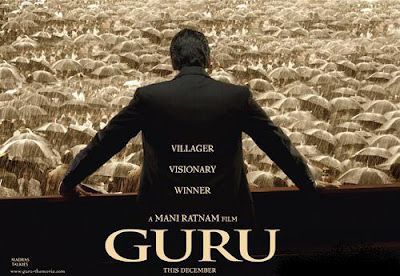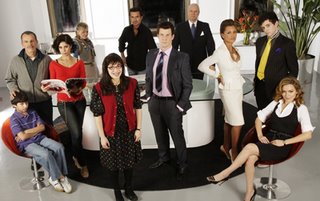
Peter O'Toole's Oscar nomination pushed Venus into the limelight at the weekend. I was a little surprised to see a clutch of young people at the back of the cinema when we went to see the film on Saturday. Noisy during the ads and trailers the young audience was quiet through the film. I wonder what they made of it? Since the film caused problems for the middle aged and the late middle aged, it can't have been easy for them.
I confess that I enjoyed this film much more than I was expecting. For the first half I laughed (out loud on several occasions) and then just after halfway I began to weep and continued in an emotional state to the end.
The amazing thing is that so many reviewers seem to have problems with the representations of sexuality in this film. Bradshaw refers to "quasi sex", Kermode said they didn't really deal with sex (i.e. compared to The Mother, another Hanif Kureishi/Roger Michel collaboration). The usually reliable Philip French was disgusted and the even more reliable Jonathan Romney in the Independent on Sunday ducked the issue by reviewing something else. Unfortunately, I haven't noticed any reviews by women yet. Let's face it -- this movie is all about sex and for an audience that recognises this, it is intensely erotic. The Peter O'Toole character is an old man with prostate problems, resulting in a catheter and impotence, but he still has sexual desire and circumstance sets up a relationship with a young Yorkshirewoman (terrific performance by Jodie Whittaker) – a working class lass with beauty and some naivete, uncouth but naturally beautiful, vital and healthy. What follows is a classic sexual encounter between two people each with a power over the other, but also with a longing for emotional contact.
I'll let Bradshaw and co into a secret, sex doesn't have to involve penetration or even physical contact. As someone once said, the most potent sexual organ is the brain. Conversations can be sexual, looking (scopophilia -- this is cinema for heavens sake!) can be sexual. In fact, Venus does go a little beyond this and when O'Toole lifts Jessie's long hair and kisses her neck it's devastating. Hanif Kureishi explains the background to all of this in his article in the Guardian's Saturday Review of 26 January. His inspiration was the work of the Japanese novelist Tanizaki Junichiro who wrote extensively about the sexual desire of older men, particularly in the short novel, Diary of a Mad Old Man (1961). Kureishi explains that he read the novella several times and then "wrote round it", taking the central idea as inspiration. Here is Kureishi on Tanizaki and desire:
"Desire is the devil in Tanizaki, a torment you can never escape or fulfil, except temporarily. Yet without it there is inertia, emptiness, routine. On top of this, particularly as people age and there is less novelty available to them, desire is only sustained by others, by jealousy, rivalry, secrecy and human obstacles. Relief is only ever a reprieve, and the characters are forced towards extinction by their never-ending desire. Tanizaki is not an experimentalist himself; he is a straightforward writer, not a modernist. But his characters' lives become experimental once they engage with what they really want, once they realise they cannot escape their sexuality. Self-knowledge is impossible, foolish even; all you can do is try to follow your body."
I think Kureishi is justified in pointing to other Japanese novels and films as dealing with older people's fears and desires in much more interesting ways than many youth-obsessed Western texts. Philip French actually recognises the connection (perhaps accidentally?) but berates Kureishi and Michel for not being like Ozu and offering a 'humane' study of old age like Tokyo Story. Tokyo Story is indeed wonderful, but is only one of many works by Ozu and several other Japanese directors that represent interesting (and sexual) older men (and yes, it tends to be older men and younger women in the ones I have seen). As more of the work of Ozu, Mizoguchi and others slowly becomes available, I hope to find more time to watch it.
Could this film be used with 16-19 year-olds? I'm not sure, but it certainly offers a text against which to assess the centrality of the male gaze. The whole narrative is about looking and being looked at and although the old man looks at the young girl, this isn't just the powerful looking at the the powerless. One scene at the Royal Court shows O'Toole enjoying watching the girl who is staring at the stage, shocked and fascinated by the characters (young women of her own age) engaged in a 'realistic' argument.
One last point on Venus -- the print looked dreadful. I couldn't work out if it was deliberately gloomy and murky or whether it was badly projected (Vue, Leeds Light). I did note that the image was too big for the screen and a subsequent discussion with a projectionist suggested that the Vue screen had an underpowered projector with insufficient illumination for the screen size. I confess that I did think the screen was too big for the cinema -- usually, it is the other way round.


